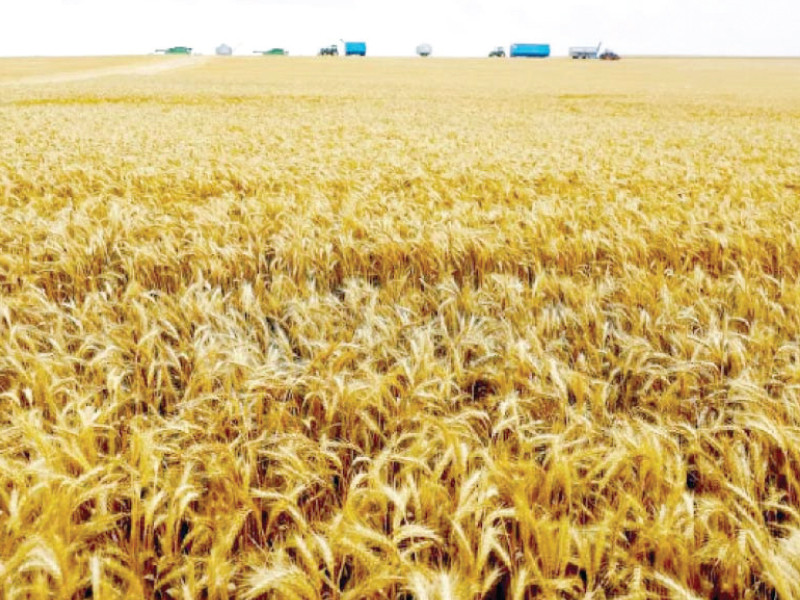ISLAMABAD:
In the span of just a few days, two seemingly contradictory headlines graced the front pages of Pakistan’s newspapers, shedding light on the perplexing state of the country’s decision-making.
The first headline, about wheat crisis, detailed how wheat prices had plummeted, leaving farmers unable to secure the guaranteed support price for their produce due to the influx of imports. This led to widespread protests by farmers demanding fair compensation.
The second headline, highlighting soaring prices of onions and other vegetables due to increased exports, painted a starkly different picture of consumers struggling with inflation and trying to afford basic necessities.
These ironical headlines encapsulate the confusion and contradictions prevalent in the country’s economic policies and the broader state of affairs. On the one hand, farmers are protesting for higher prices, while on the other hand, consumers are grappling with skyrocketing costs while agricultural exports are bringing in the much-needed foreign exchange.
If we were to follow this line of reasoning, our approach would entail importing food items from abroad only when they are expensive. Otherwise, such imports would lead to reduced prices locally, adversely affecting the profitability of farmers.
Moreover, exporting any food items should be avoided altogether, as it would drive up prices for consumers domestically. The notion of exporting only surplus food becomes questionable when we consider the millions who suffer from hunger and malnutrition.
On the surface, the farmers’ grievances seem legitimate. After all, who wouldn’t want a guaranteed income for their hard work? But here’s the rub: the artificially inflated support price for wheat, higher than the market price, makes it more expensive for consumers than it has to be.
In a country where nearly half the children under the age of five are stunted and half a million people die annually due to malnutrition, this situation borders on criminality, and its impact on poverty cannot be overstated.
The estimated loss of Rs400 billion to farmers can be seen as a benefit of the same amount to consumers. To put this figure in perspective, it is equivalent to providing a year’s worth of wheat supply to 26 million people at current market prices.
These contradictory crises reflect a broader systemic issue: centralised control and Soviet-style planning and decision-making.
Almost every year, there are headlines about wheat and sugar shortages or high prices, but nobody remembers the last time there was a rice crisis because government intervention is relatively minimal, with no minimum support price or export subsidy.
The government’s role should be that of a facilitator, not a meddler. Abstaining from price controls, import restrictions, export quotas, and guaranteed minimum prices allows the market to function organically.
Consumers should have the opportunity to benefit from the productivity of other nations by obtaining wheat and other food items at lower prices. At the same time, farmers should have the flexibility to seek higher prices in the global market.
Imagine a scenario where Pakistan imports food items that are cheaper globally, allowing consumers to enjoy the affordability of these items while enabling farmers to invest in crops that could potentially fetch higher prices, either domestically or internationally. This wouldn’t just put food on more tables but also inject much-needed efficiency into the system.
The solution lies not in further distorting the market with protests and support prices, but in embracing a pro-market approach. This promises not only greater efficiency and fairness but also a more sustainable solution to the nation’s food security challenges.
Embracing a pro-market approach is not just a choice; it’s a necessity for Pakistan’s economic prosperity and social well-being and can help balance interests of both farmers and consumers.
The writer is affiliated with the Policy Research Institute of Market Economy (PRIME) as a fellow
Published in The Express Tribune, June 3rd, 2024.
Like Business on Facebook, follow @TribuneBiz on Twitter to stay informed and join in the conversation.
